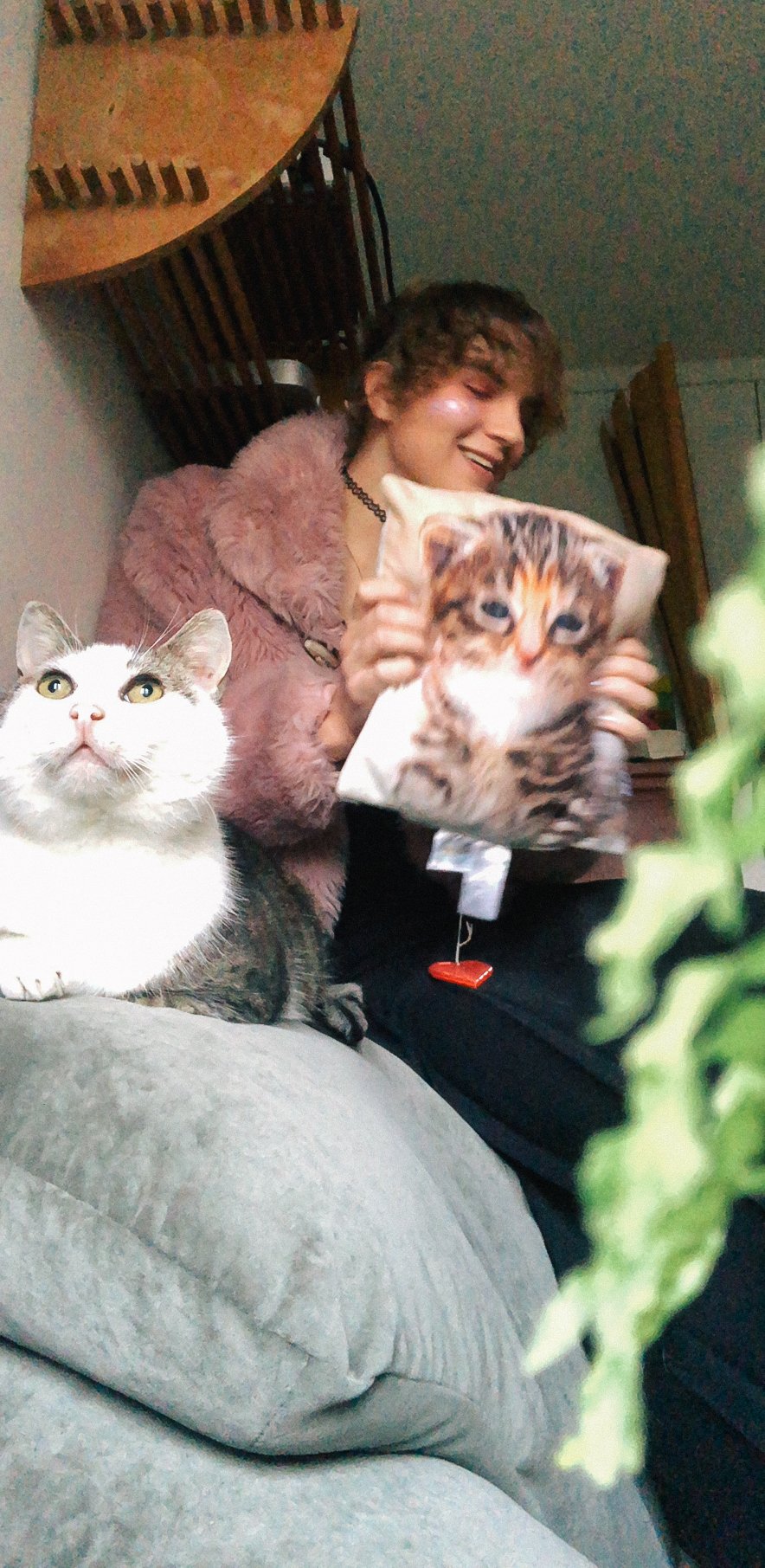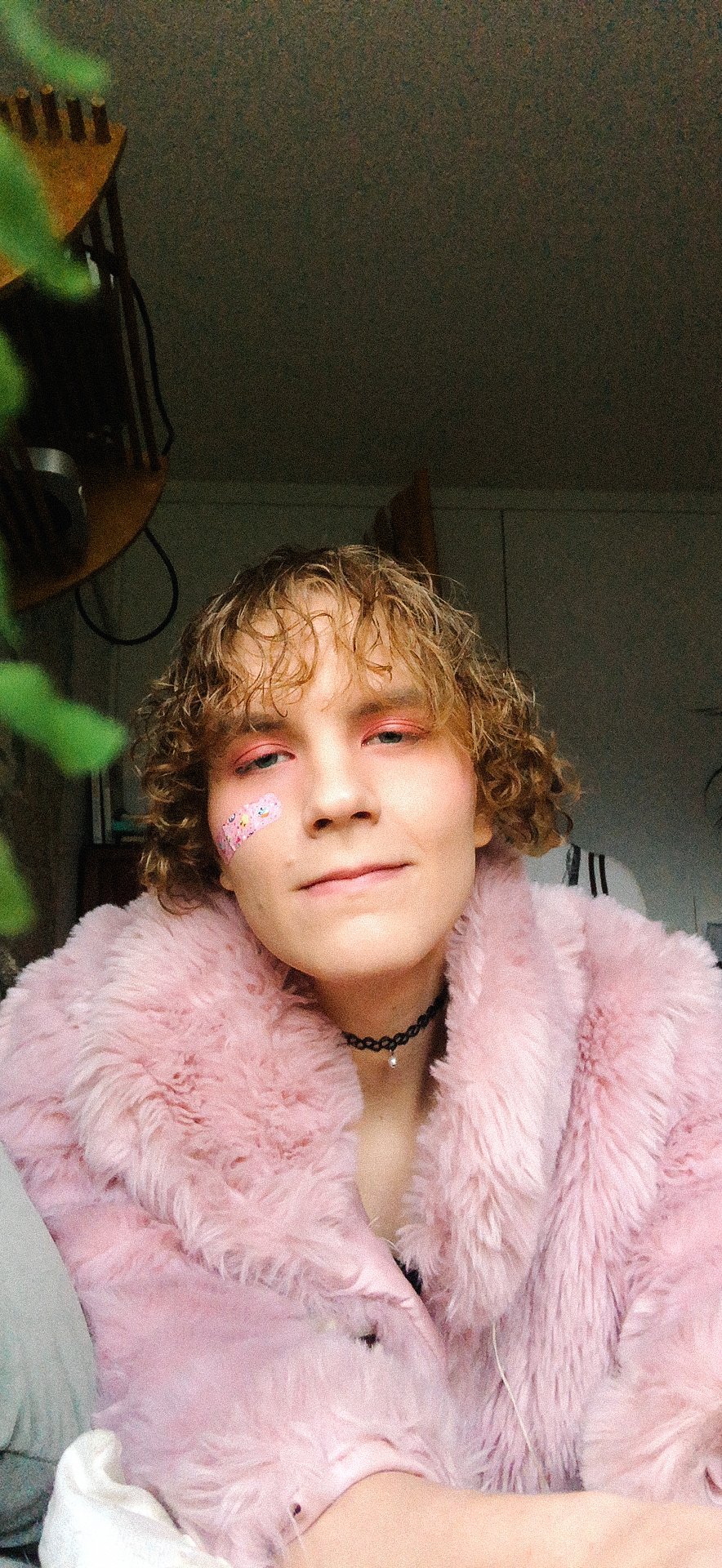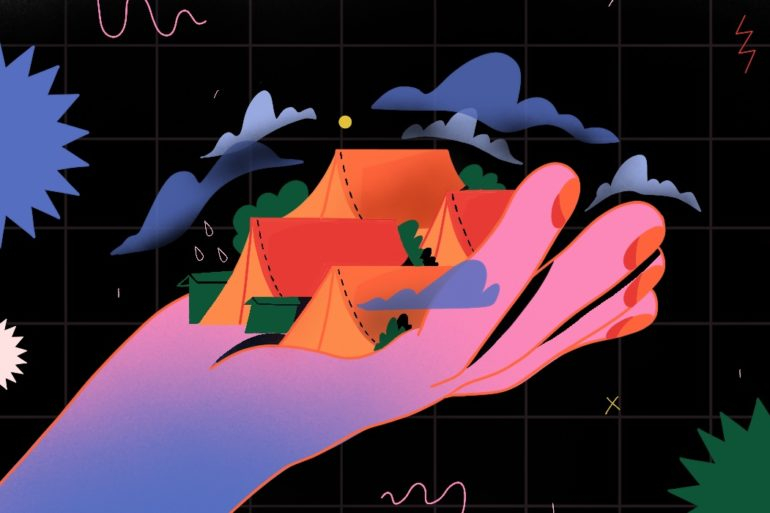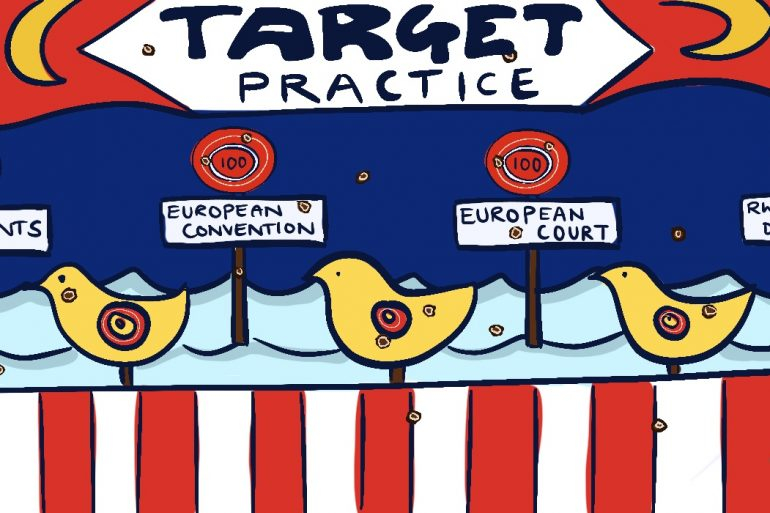In 2019, when Lili Aslo, aka Knife Girl, was 19 years old, she boarded a flight from Tokyo back home to Helsinki. Having been away on an exchange year, she’d just seen her then partner for a final time before she grabbed her bags and headed to the airport.
Taking her seat for the 13-hour journey, she started crying, and scribbled these words into her notebook: “Now I’m sitting on a plane with a million things I’d say – if I had WiFi access for like five more minutes, oh, I’d let you know.”
These words are now the lyrics which form Knife Girl’s song ‘On The Line’, from her freshly-released debut album Uniform. Having predominantly been an electronic music producer in the past, the album breaks new ground for her – working with a band for the first time in her career and pushing at the walls of genre.
“I think ‘On the Line’ is probably my favourite now,” she says. “Most of that song came about pretty quickly on the plane home – I really felt like it expresses the feeling of being young and not knowing what the fuck you’re doing.”
We’re chatting over Zoom in the days after the release of Uniform, the title of which references her time in Japan. The year she spent there was before she came out as trans – and it was her first face-to-face meeting with gender dysphoria. “We had to wear these school uniforms,” she says. “I don’t think I’d encountered gender norms the same way before – there were a lot of expectations on how boys are supposed to act and how girls are supposed to act.”
One day, attempting to express herself, Lili went out in makeup. It infuriated the host family, who she was staying with at the time, who told her that she couldn’t go out looking like that.
This may well be because the official stance on gender expression for trans people in Japan is archaic. The legal recognition process has been outed by Human Rights Watch as “regressive and harmful”, and rightly so. It goes against internationally recognised medical best practice and “rests on an outdated and pejorative notion that a transgender identity is a mental health condition, and requires transgender people who want legal recognition to undergo lengthy, expensive, invasive, and irreversible medical procedures.” Given the need to use your legal ID to access a multitude of spheres from medical care to work, this causes a myriad of issues and barriers for Japan’s trans community.
“The dysphoria kind of unlocked this depression in me,” she says. “Uniform came from society’s expectations on what people should be like and what they should do with their lives.”
The album is a deep dive into Knife Girl’s musical breadth and emotional range. More summery, upbeat tracks like ‘Never Let Go’ and ‘The Good Times Are Coming Your Way’ are interspersed with more introspective songs such as ‘Precocious Baby’ – a downtempo jam reminiscent of Tame Impala and some of psych rock’s greatest. David Bowie and Prince are cited as influences, and their abilities to blend pop with more left-field musical elements shine through in the arrangements and production.
Much of the optimism found in the album comes from discovering her trans identity. “It’s been crazy to sort of enjoy life,” she says, a tone in her voice suggesting that there is still an element of surprise in her positivity.
Despite always having a complicated relationship with gender, Lili clearly remembers the day when she properly realised that she was a woman. After returning from Japan, Lili was at a friend’s house, chilling while he flicked on the Xbox and started playing a video game called Dead or Alive Xtreme Beach Volleyball. The game features swimsuited, well-endowed female anime characters playing volleyball against one another, and Lili was staring at them.
“You know, if I could just press a button and become a girl,” Lili started saying. “I’d do it.”
To which her friend replied: “That kind of sounds like you’re trans.”
For the next hour, Lili stared at a lava lamp her friend had in a corner in complete silence, while he continued to play the game, pondering her life and identity up to that point. “And I was like: ‘Holy shit. And a lot of things just started making sense,” she says. “It was scary. I didn’t really want to in a way – I knew it would kinda suck.”
And in many ways, it has. Despite Finland’s reputation as being one of the most socially and culturally tolerant countries in the world, particularly when it comes to LGBTQI+ issues, the reality is not quite as rosy for trans people as the optics suggest. In order to access hormone replacement therapy (HRT), trans people are forced to be sterilised.
Although the country’s prime minister, Sanna Marin, said at the Helsinki Pride in June that she wanted to abolish the sterilisation law, there are still a number of medical and cultural barriers to transitioning. “There’s this attitude that we’re really progressive in Finland – that we’re really down with the LGBT+” Lili says. “What it really means is that we love gay people. Trans people feel like an asterisk.”

And it’s not just attitudes which are the problem. “Trans healthcare is awful. It doesn’t really exist,” Lili continues. “When you start at the trans care centre, they literally say: We’re not treating you – this isn’t healthcare, we’re studying you. So rather than experiencing healthcare, you’re participating in the study of trans people and they are checking if you fit their idea of what a trans person should be like.”
The therapy sessions available to people transitioning are also sparse, with waits in between each appointment often taking up to eight months, meaning people are normally within the system for many years, in a long and drawn-out transitioning process.
For Lili though, the difficulties are worth the comfort that she feels in her body and gender identity, and the impact on her music is particularly exciting. “The one really big thing for me was my voice,” she says. “When we were recording Uniform I made the decision that I wasn’t going to do anything about my voice – I was just going to sing the album the way that it came out of my mouth.”
“Even if my voice changes in the future, I’d still think it’s a good thing that I made it the way that felt natural at the time,” she says. “But in my new music I’m definitely processing my vocals in a different way.”
Subscribe to shado's weekly newsletter
Exclusive event news, job and creative opportunities, first access to tickets and – just in case you missed them – our picks of the week, from inside shado and out.

As someone whose lyrics are often deeply personal, the music she is working on expresses her newfound identity – something else that she is eager to explore more. “Gender, the way that is expressed and the way that it has affected my sexuality is very close to my heart now in a way that it wasn’t before,” she says. “I’m really feeling myself right now.”
“All the time I am learning more and more about how I am expressing myself – the way I speak, the way I dress, the relationships I have,” she says. “I’m just really looking forward to living life.”
What can you do?
Read:
- The Transgender Issue by Shon Faye
- Gender Euphoria by Laura Kate Dale
- Light from Uncommon Stars by Ryka Aoki
Listen:
Support:
















